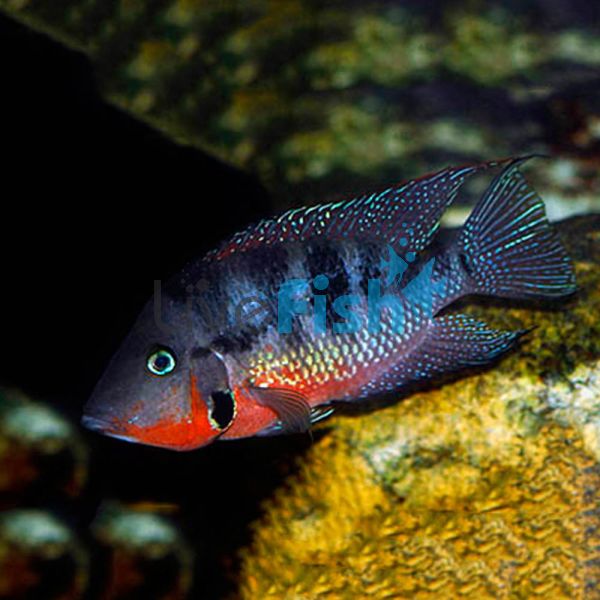Firemouth 3.5cm
Firemouth Thorichthys Meeki
- Buy 4 for $20.18 each and save 20%
- Buy 6 for $17.65 each and save 30%
Firemouths are a popular aquarium fish, with their fiery red colour, active displaying and hardy nature. With false eye spots on their gills, Firemouths may flare their gills out at anything that threatens them, to create an impression they are much greater in size. They are well suited to aquaria containing similar sized or slightly smaller species and are one of the more peaceful Central American Cichlids. Native to Yucatan in Mexico and Guatamala, they grow to 12-15cm.
More than 225 species, with estimates of 300 species, of cichlids are found throughout South America. An estimated 75% of these inhabit the mighty Amazon River Basin. Cichlids are also found in Central America, where they are well-known for their pugnacious behavior and their stunning colors. Most of these cichlid are large, thus requiring large tanks. These fish inhabit most types of water ways throughout Central America including lakes, streams, rivers, even underground water sources.
Their colorful appearance, the many different species available, their behavior and their breeding are just some of the reasons the Cichlids are one of the most popular aquarium fish.
Due to their aggressive behavior, the tank for cichlids should be as large as possible, with its length being more critical than its height; meaning the longer the better.
In the Cichlid tank there must be places of refuge. These can be rock caves, large pieces of driftwood or even inverted flowerpots. Most large species of Cichlids will dig up the substrate material, and occasionally will remove plants from the substrate. The Angelfish, Discus and the dwarf species Apistogramma all prefer a densely planted tank.
The water temperature should be in the range of 24-28 degrees celsius, slightly higher for the Discus. The diet should consist of live and frozen food of all kinds as well a large flake staple food. Large specimens can be feed Earthworms, garden Crickets and kitchen leftovers.




